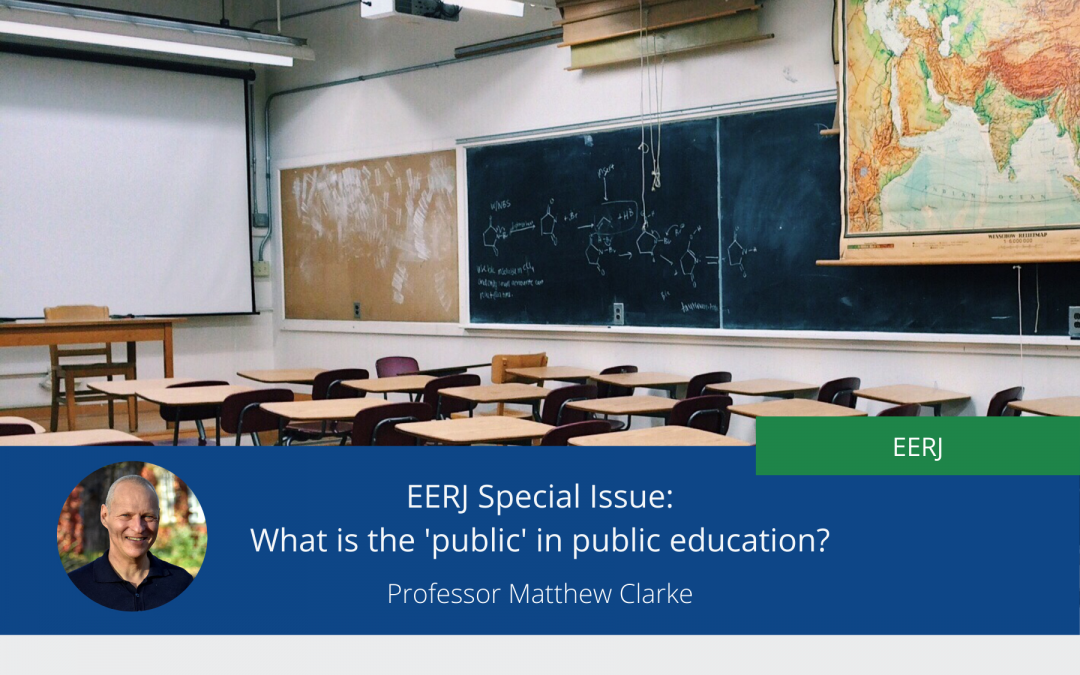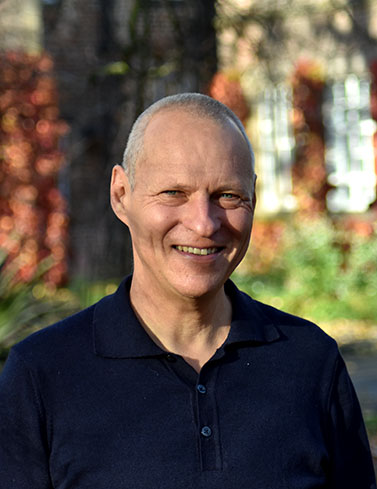
EERJ Special Issue: What is the ‘public’ in public education?
The European Educational Research Journal (EERJ) was created by EERA to further the aims of the association and its members, educational researchers across Europe. It is a scientific journal interested in the changing landscape of education research across Europe. It publishes double-blind peer-reviewed papers in special issues and as individual articles. As part of the ongoing cooperation with EERJ, the EERA blog will share updates and information about upcoming and published special issues and articles alongside blog posts from EERJ contributors.
What is the ‘public’ in public education? Mapping past, present and future educational imaginaries of Europe and beyond
First Published January 10, 2022, Editorial
This special issue explores past, present and potential future imaginaries of ‘public’ education in Europe and beyond. The special issue is set against a backdrop of political turmoil, including support for far-right forms of populism; it is also set against a historical background of several decades of significant change in the social, political and economic contexts of education, whereby schools and universities have been reimagined and reorganized in order to conform to the marketized and managerialist contours of the neoliberal imaginary; and it is set against the background of the Covid-19 pandemic, which has led to lockdowns and school closures in many countries and prompted many to question supposedly ‘normal’ ways of doing school and education in less turbulent times.
The term “unprecedented” has been used frequently to talk about current times. This is a time marked not only by a turn to right-wing populisms, often harking to neo-conservative, nostalgic notions of a glorious past and captured in slogans such as #MakeAmericaGreatAgain; #MakeChinaGreatAgain; #MakeBritainGreatAgain. It is also a time of collective left-wing rage and resistance movements such as #decolonising education, #blacklivesmatter, #metoo, #democracy4HK, #precaritystories, and #occupy. Technological inventions and innovations, as well as extreme weather events brought about by climate change, such as the massive 2019 Australian bushfires, are challenging the very existence, form and future of homo sapiens, and other species on planet Earth. For all these reasons, the special issue is topical and timely.
With such a complex backdrop, the special issue insists on the importance of recognizing the multi-dimensional nature of the notion of the public. Rather than defaulting to a commonsense private-public binary, our multidimensional perspective encourages us to identify at least six overlapping domains in relation to which school provision varies within and across time and space. These include:
- the purposes of education
- questions of accountability
- issues of funding
- matters of governance
- issues of professionalism
- issues of access.
Looking at the papers in more detail, the first two contributions, Pedagogic Rights, Public Education and Democracy (Heimans, Singh, Kwok) and The marketization of education and the democratic deficit (Säfström and Månsson), draw on French philosopher Rancière’s work on democracy to think with and about the ideas of ‘the public’, ‘publics’ and ‘emergent publics’.
Mendel’s On the haunted “public” in public education in Poland draws on Derrida’s notion of ‘hauntology’ to identify the traces of the ‘public’ in Poland that are from a different historical period, are strange to the present, but nevertheless still impact upon it.
The paper by Clarke and Mills, “We have never been public”: Continuity and change in the policy production of ‘the public’ in education in England, offers a historic perspective on the notion of the public and its deployment, highlighting the shifting discourses and practices within which the idea of ‘the public’ has been mobilized and made meaningful over several centuries.
Wrigley’s paper, Learning in a time of cholera: Imagining a future for public education is concerned with how public schools could be other than they currently are. Drawing on Marxist theory and Wolfgang Klafki’s curriculum theory, he develops principles for constructing ‘the common school’.
Thompson, Mockler and Hogan’s contribution, Making work private: Autonomy, intensification and accountability, reports on a multi-jurisdictional study conducted in Australia, New Zealand, Canada and England that involved interviews with 130 school and system leaders, policymakers and union officials.
Finally, Verger, Fontdevila and Zancajo’s paper, The instrumentation of public subsidies for private schools: different regulatory models with concurrent equity implications, surveys the provision of education across OECD countries to explore the multi-faceted and vernacularised consequences of public funding for private education.
The papers in this special edition offer alternative narratives to the dominant neoliberal education policy discourses and practices. They are activist in the sense of questioning and challenging the ordering of the sensible in dominant narratives of education across the globe.
About EERJ
The European Educational Research Journal was been created by the European Educational Research Association (EERA) to further the aims of the association and its members, educational researchers across Europe.
Education research increasingly crosses the borders of the national through its subjects of study, scholarly collaborations and references. The EERJ publishes education research papers and special issues which include a reflection on how the European context and other related global or regional dynamics shape their educational research topics.
You can find more about the EERJ here and browse the archive here.

Professor Matthew Clarke
Professor of Education, York St John University, England
Matthew Clarke is Professor of Education at York St John University in England and has also worked in universities in Australia, Hong Kong and the United Arab Emirates. His research interests focus on education policy and politics, particularly their implications for teachers, and his work draws on psychoanalytic, political and social theories. Recent books include Teacher Education and the Political: The power of negative thinking (Routledge 2017), Lacan and education policy: The other side of education (Bloomsbury, 2019) and Education and the fantasies of neoliberalism: Policy, politics and psychoanalysis (Routledge 2022).
